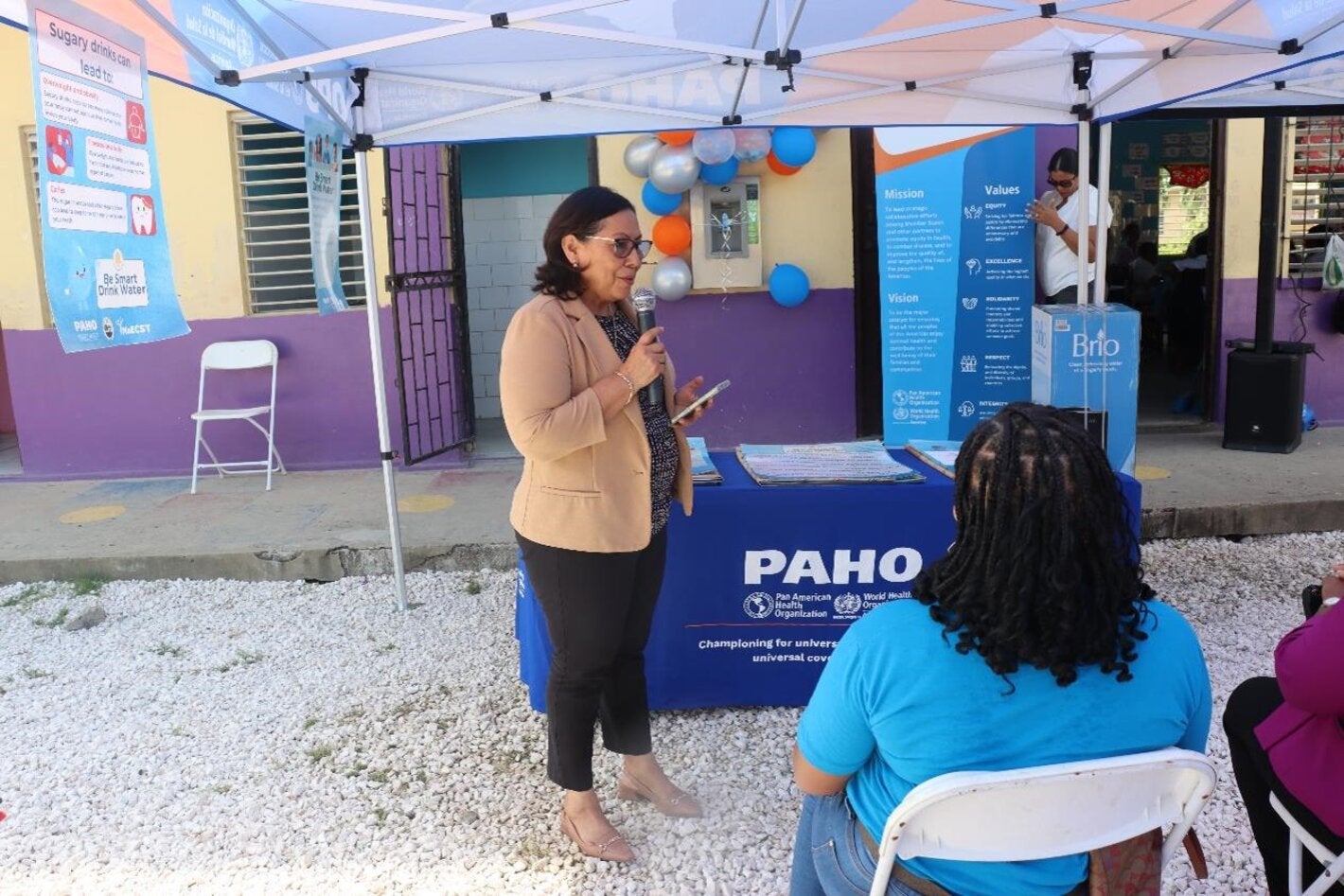
Washington, D.C., December 16, 2024—The Pan American Health Organization (PAHO) and the Organization of American States (OAS) selected projects from the Bahamas, Belize, and Colombia to receive technical assistance from the Hemispheric Program on healthy eating policies and physical activity in school environments.
These three countries receive intensified technical assistance from PAHO to promote measures such as the promotion of healthy eating and the consumption of natural water by regulating foods and beverages offered or sold in schools, restricting the availability, marketing, advertising, and promotion of ultra-processed products excessive in sugar, fat or salt, as well as the promotion of physical activity through exercise, active play, active transportation and the reduction of sedentary behavior.
The program will document the countries' experiences and prepare a regional guide that contains all the guidelines for developing healthy eating and physical activity policies in school environments. This guide will serve as a roadmap for the Region of the Americas.
The program, which began the selection process in 2022, met again in August of this year with the selected countries to discuss progress, common and novel aspects, and differences and establish regional recommendations.
The program covers three areas of action:
- Healthy school food environments: which includes that all foods available in school environments are healthy and nutritious and comply with WHO/PAHO recommendations, nutrition standards, and food-based dietary guidelines;
- Promoting physical activity through schools: involving quality physical education, active transportation to and from school, before and after school activity programs, playtime and recreation, active classrooms and school curricula, and inclusion of children with additional needs;
- Action framework to formulate and apply food procurement and service policies in the public sector to promote healthy eating: covering the development and/or strengthening, implementation, and evaluation of compliance and effectiveness of a public procurement and service policy of healthy foods, including schools and linked to the acquisition of fresh food from local farmers.
- School is a critical space for creating learning opportunities and experiences that can shape healthier eating patterns that last a lifetime. Therefore, it is crucial to develop, implement, and evaluate effective strategies, programs, and policies in educational systems to improve school environments.
Objectives by country
The Bahamas will focus on reducing the availability of unhealthy foods by studying food vendors' sales and understanding student preferences through focus groups.
The Belize project, Healthy School Environments, includes an assessment of sugary drink consumption trends among students, providing drinking fountains and water coolers to promote water consumption, and a campaign to discourage the consumption of sugary drinks and encourage water consumption.
Colombia will focus on promoting physical activity, recreation, and sports in schools by designing and piloting questionnaires for students, teachers, and educational authorities. These questionnaires, which assess behaviors related to physical activity and sedentary lifestyles and outcomes, have already been conducted and discussed at a workshop in July 2024, where the next steps to improve school environments were defined.
Next steps
In April 2025, the three participating countries will dialogue to document their experiences, and in June of the same year, a follow-up session will be held with all the countries of the Region. Considering the lessons learned from the countries, a regional guide will be developed that contains all the guidelines for developing healthy eating and physical activity policies in school environments.



